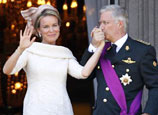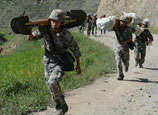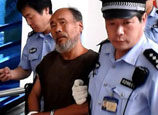
Second, complete the "cross-recognition" process. The concept of cross-recognition, first put forward by Henry Kissinger in 1975, refers to a situation where China and the Soviet Union diplomatically recognized South Korea while the US and Japan gave diplomatic recognition to North Korea. In the early 1990s, both the Soviet Union and China established diplomatic relations with South Korea, but up to date, the cross-recognition is just half finished.
Completing the other half of the cross-recognition, especially establishing Washington-Pyongyang ties, will gives North Korea a sense of security the isolated nation needs badly. The establishment of diplomatic relations between North Korea and the US or Japan will be conducive to the opening of Pyongyang to the international community and to making it a responsible member of that community, and will help settle the Korean Peninsula issues.
In the meanwhile, bilateral discussions between North Korea and Japan would be the right occasion for Tokyo to bring up its so-called abduction issue, which should not have been talked about at the Six-Party Talks.
Third, set up a regional security mechanism. In the global setting, the Korean Peninsula represents an instance where any regional, durable and stabilizing security institution or effective mechanism for dialogue is absent. A security mechanism in Northeast Asia is urgently needed.
Given what happened to Iraq and Libya, given the fact that "becoming a nuclear power" had been enshrined in the constitutions of North Korea and its ruling party, the odds are slim that Pyongyang would agree to discard its nuclear program.
The Six-Party Talks, even if resumed at the mercy of North Korea, is highly unlikely to produce the desired results of denuclearizing the Korean Peninsula. The international community should face the music to accept a nuclear North Korea, no matter how primitive its nuke weapon may turn out to be.
But the Six-Party Talks could be turned into a regional security regime, preferably co-chaired by China and the US. It should be institutionalized as a platform where powers with a stake in Northeast Asia could meet on a regular basis to exchange views on their basic stances and where everything related to the peace and security in the region could be discussed in either bilateral negotiations or multilateral consultations.
The author is deputy managing editor of the Global Times. chenping@globaltimes.com.cn

















 China builds 'world's tallest building'
China builds 'world's tallest building'


![]()
